A Better Man
Attiya Khan & Lawrence Jackman
2017
| 79 min
Prizes and awards
Top Twenty Audience FavoriteHot Docs 2017
Official SelectionAtlantic International Film Festival 2017
Sabeen Mehmud Award for Courage in CinemaMosaic International South Asian Film Festival 2017
Official SelectionPEI Festival 2017
Official SelectionDOC NYC 2017
Official SelectionGimli Film Festival 2017
Official SelectionDocumenta 2017
Official SelectionSan Diego Asian Film Festival 2017
Official SelectionSt-John’s International Women's Film & Video Festival 2017
Official SelectionVisioni dal Mondo, Milan 2017
“I wish I could have been a better man.”
On a hot summer night 22 years ago, 18-year-old Attiya Khan ran through the streets, frightened for her life. She was fleeing her ex-boyfriend Steve, who’d been abusing her on a daily basis.
Now, all these years later, Attiya has asked Steve to meet. She wants to know how he remembers their relationship and if he is willing to take responsibility for his violent actions.
This emotionally raw first meeting, filmed by Attiya with Steve’s consent, is the starting point for A Better Man. The rough footage also marks a new beginning in Attiya’s own recovery process—as well as an important starting point for Steve. For the first time ever, he speaks of the abuse and cracks opens the door to dealing with the past.
Illuminating a new paradigm for domestic-violence prevention, A Better Man offers a fresh and nuanced look at the healing and revelation that can happen for everyone involved when men take responsibility for their abuse. It also empowers audience members to play new roles in challenging domestic violence, whether it’s in their own relationships or as part of a broader movement for social change.
“I wish I could have been a better man.”
On a hot summer night 22 years ago, 18-year-old Attiya Khan ran through the streets, frightened for her life. She was fleeing her ex-boyfriend, Steve, the young man who’d been abusing her daily for two years. Escape didn’t come easily. The steady violence had left Attiya both physically and emotionally drained. When she finally bolted and ran, Steve pursued her. But she was quick on her feet and managed to get away, a traumatized but determined teenager beginning to realize that she deserved more out of life.
Now, all these years later, Attiya has asked Steve to meet with her in a coffee shop. Attiya has long moved on with her life, but she continues to bear the emotional scars of their time together. She wants to know how Steve remembers their relationship and how he justifies what he did to her. She wants to know what scars, if any, he bears as well. Most importantly, she wants to know if Steve is willing to take responsibility for his actions.
This emotionally raw first meeting, filmed by Attiya with Steve’s consent, is the starting point for A Better Man. The rough footage also marks a new beginning in Attiya’s own recovery process—as well as an important starting point for Steve. For the first time ever, he speaks of the abuse and cracks opens the door to dealing with the past.
Told through Attiya’s personal narrative, A Better Man goes on to follow a series of intimate conversations that take place between the former couple and therapist Tod Augusta-Scott, who specializes in working with men who have used violence. With Tod’s help, Steve is able to return to the past he thought he had left behind and allows himself to remember specific incidents of abuse. As Steve and Attiya revisit their old apartments, school and hang-out spots, two very different sets of memories emerge. With surprising courage and empathy, Steve and Attiya lay bare their vulnerability to help each other come to terms with the violence that took place so many years ago. Attiya’s narrative and healing process may be central to the film, but this is Steve’s story as much as it is hers.
From the outset, Attiya knew that making this film would be extremely painful. But it was an exercise that went far beyond advancing her own healing journey. As a domestic-violence counselor, Attiya has witnessed firsthand the persistence of violence against women, despite the tireless efforts by advocates to bring about change. Through this experience, questions began to formulate in Attiya’s mind: Why is it so difficult for men like Steve to get the help they need to change? What can be done to support them in a rehabilitative context? What if greater emphasis were placed on prevention instead of punishment?
Illuminating a new paradigm for domestic violence prevention, A Better Man offers a fresh and nuanced look at the healing and revelation that can happen for everyone involved when men take responsibility for their abuse.
By showing that men who use violence can be both willing and valuable participants in the healing process, A Better Man infuses new energy and possibility into the movement to end violence against women. It empowers audience members to play new roles in challenging domestic violence, whether it’s in their own relationships or as part of a broader movement for social change.
A Better Man is a co-production of the National Film Board of Canada and Intervention Films. The project was initiated by one of the most successful documentary crowdfunding campaigns in Canadian history, exceeding its stated target by 50 percent. Its global supporters include author Margaret Atwood and musician Leslie Feist, along with leading labour unions and anti-violence groups. Resources for those seeking help with domestic violence can be found on the film’s website, at www.abettermanfilm.com.
CO-DIRECTOR’S STATEMENT - ATTIYA KHAN
A Better Man grew out of my personal and professional experiences with domestic violence. I hope that sharing my personal search for justice and healing will contribute to the struggle to end domestic violence.
I desperately want domestic violence to stop. Art, storytelling, and deep, painful conversations are an integral part of the solution. By getting closer to the truth of what survivors experience, and of why men choose to use violence, we can help stop the violence.
A Better Man documents a personal experiment for me and my abusive ex-partner, Steve—a step towards healing, understanding, and accountability. My hope is that our story will motivate others to find new, creative solutions to a problem that continues to be a global epidemic.
This film was truly a community effort. Its seed funding came from more than 1,000 contributors from 30 countries. Artists, advocates, labour unions, leaders in the women’s community, friends, and family all stepped up, lending emotional, financial, creative, and political support to this extremely challenging project. Our production team combined expertise in documentary film with experience with the complex subject of domestic violence. The compassion of this community provided the support that Steve and I needed throughout the process.
During the nearly five years of making this film, I have had the privilege of meeting dozens of people working on innovative solutions to the problem of domestic violence. In nearly every community, there are advocates, activists, counsellors, and others working on new approaches to justice, new ways of healing, and new paths to non-violence for the people who use violence. Their work is deeply inspiring and deserves our close attention.
In telling my story, I stand on the shoulders of so many survivors who bravely told theirs. A Better Man is also held up and inspired by a powerful and growing movement to end domestic violence that has been working on behalf of survivors for decades. If this film can help contribute to this movement, if it can inspire more courageous conversations in relationships, schools, and workplaces, then we will have begun to achieve our goal.
CO-DIRECTOR’S STATEMENT - LAWRENCE JACKMAN
Originally, Attiya had no intention of being a central character in this documentary. However, given her personal and professional connections to the issues, it soon became clear that she was an essential part of the story.
Attiya and Steve are both still grappling with the aftereffects of their time together. Much of Attiya’s life continues to be based around dealing with the trauma, and Steve seems in many ways to be a broken man. Part of Steve’s motivation for participating in this film was to show other men the effects his actions have had on his life.
The main challenge in making A Better Man was that we were making public a process that would normally be private. Attiya and Steve were prepared to reveal this intensely difficult process for us, and it was the film crew’s responsibility to make this as easy and honest as possible.
For the therapy sessions, our solution was to create a situation where everything was prepared before the sessions, so that Attiya and Steve could step into the filming process with ease. Even though it was a very controlled environment, once the cameras started to roll, it was essentially a verité shoot, with the discussion guided by the therapist, Tod Augusta-Scott.
Both Attiya and Steve showed great courage in allowing us to witness this process. It is a personal story, but one that has the possibility to create positive change for others, both victims and men who use violence. It also calls attention to the responsibility we all have to change the way our society perceives and deals with domestic abuse and violence against women.
The Social Issue
Gender-based violence is among the most pervasive human rights violations in the world, with the United Nations reporting that up to 70% of women have been subject to a form of physical or sexual abuse from an intimate partner or loved one. The UN defines violence against women as:
any act of gender-based violence that results in, or is likely to result in, physical, sexual or psychological harm or suffering to women, including threats of such acts, coercion or arbitrary deprivation of liberty, whether occurring in public or in private life (UN 1993).
According to a 2013 Statistics Canada report, the rate of violent crime against young women aged 15 to 24 was 42% higher than the rate for women aged 25 to 34, and nearly double the rate for women aged 35 to 44. The study also found that females aged 15 to 24 were the most vulnerable to certain types of dating violence, namely sexual violations. Approximately every six days, a woman in Canada is killed by her intimate partner.
Despite these startling statistics, in North America, relatively little has been invested in the rehabilitation of men who have used violence with a view to preventing future instances of abuse. Tackling this issue requires changes in norms in society and changes in behaviour within individuals. The UN Human Rights Council’s resolution on eliminating domestic violence emphasizes the important role that men and boys can play and encourages them to become strategic partners and allies. It also stresses the importance of effectively responding to violence against boys as well, in order to break intergenerational cycles of violence.
Trailer
Clip 1
Clip 2
Clip 3
Clip 4
Promotional Materials
Images
Loading...
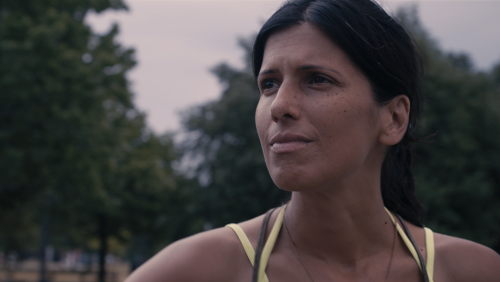
Download
Loading...
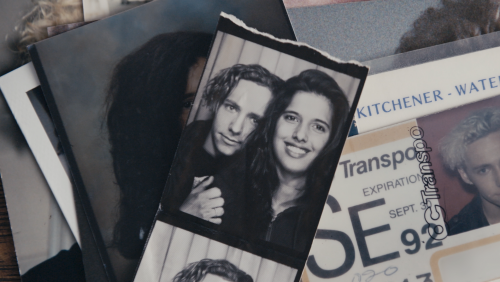
Download
Loading...
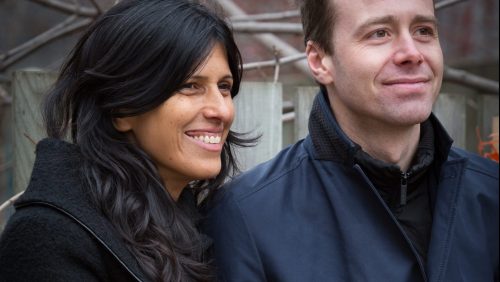
Download
Loading...
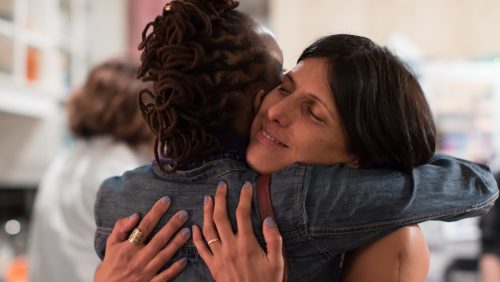 Photo: Marina Dempster
Photo: Marina Dempster
Download
Loading...
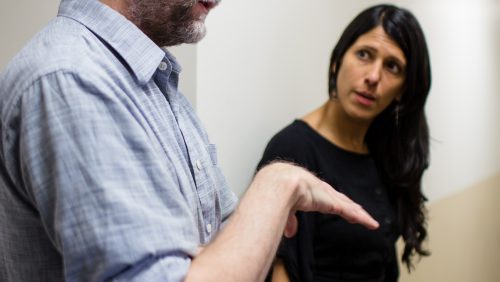 Photo: Marina Dempster
Photo: Marina Dempster
Download
Loading...
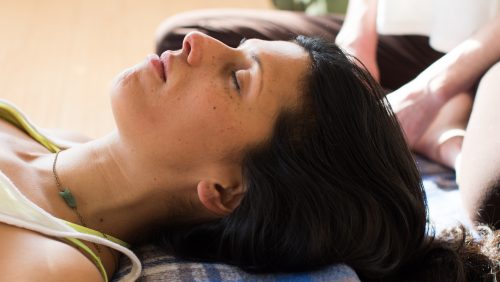 Photo: Marina Dempster
Photo: Marina Dempster
Download
Loading...
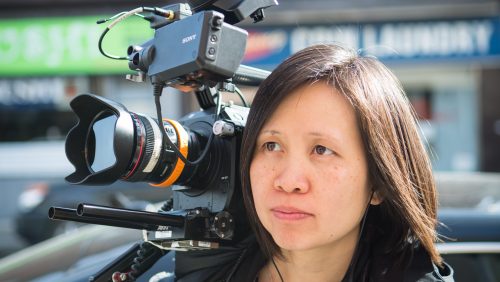 Photo: Marina Dempster
Photo: Marina Dempster
Download
Loading...
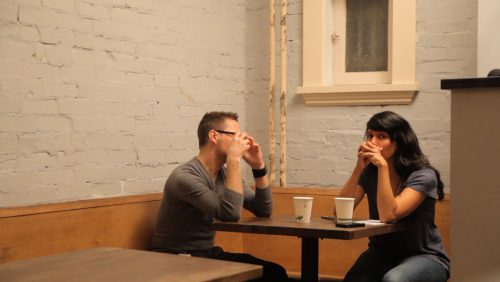
Download
Team
Attiya Khan
Writer, Co-Director
Photo
Photo : Jennifer Rowsom
Lawrence Jackman
Co-Writer, Co-Director, Editor
Photo
Photo : Jennifer Rowsom
Christine Kleckner
Producer (Intervention Productions Inc.)
Photo
Photo : Jennifer Rowsom
Sarah Polley
Executive Producer
Photo
Photo : Denise Cronenberg
Anita Lee
Executive Producer (NFB)
Photo
Photo : NFB
Jane Jankovic
Executive Producer (TVO)
Photo
Kathy Avrich-Johnson
Co-Executive Producer
Photo
Photo : Paola Scattolon
Iris Ng
Director of Cinematography
Photo
Photo : Michael Barker
Lesley Barber
Composer
Photo
Photo : Katherine Holland
Credits
Intervention Productions
In co-production with the National Film Board of Canada
Produced in association with TVO
A film by Attiya Khan and Lawrence Jackman
Written and Directed by
Attiya Khan and Lawrence Jackman
Producer
Christine Kleckner
Producer
Justine Pimlott
Executive Producer
Sarah Polley
Executive Producer
Anita Lee
Executive Producer, TVO
Jane Jankovic
Executive Producers
Janice Dawe
Kathy Avrich-Johnson
Director of Photography
Iris Ng
Editor
Lawrence Jackman
Music Composed by
Lesley Barber
Featuring
Attiya Khan
Steve
Tod Augusta-Scott
Alex Mazer
Elliot Mazer
Seth Martiniuk
Sollange Umwali
Associate Producer
Lori Chodos
Additional Cinematography
Jennifer Rowsom
Stan Barua
Marcus Matyas
Curry Leamen
John Price
Mark Caswell
Sound Recording
Jason Hopfner
Mary Wong
Bruce Cameron
Camera Assistant
Jordan Kawai
Eva Percewicz
Stephanie Corfield
Grip
Zach Zohr
Mark Feenstra
Stefan Kuchar
David Doldersom
DIT
Set Shuter
Additional DIT
Curry Leamen
Gregory Szymanski
Production Assistant
Shane MacKinnon
Rob Chodos
Stills Photography
Marina Dempster
Title Design
Electric Square
Impact Producer
Steph Guthrie
Narration Consultant
Soraya Peerbaye
Researcher
Elizabeth Kalbfleisch
Social Media
Janette Luu
Development Production Manager
Nagmeh Phelan
Music Supervisor
Jody Colero
Transcription
Laurel Toews
Production Accountant
Candis Buder
Adriana Aviles
Accountant
Kay & Warburton
Insurance
Arthur J. Gallagher Canada
Interim Financing
Rogers Communications Inc.
Equipment Rental
Sim Digital
Charles Street Video
Joe Sutherland Rentals
William F. White International Inc.
Inspired Image Picture Company
Manager, Business Affairs
Nava Rastegar
Independent Production Officer, TVO
Linda Fong
For the NFB
Production Supervisor
Mark Wilson
Studio Administrator
Stefanie Brantner
Technical Coordinator
Marcus Matyas
Production Coordinators
Natalie van Dine
Andrew Martin-Smith
Marketing Managers
Melissa Wheeler
Amanda Laukys
Post-Production House
Redlab Digital
Account Manager
Ahmad Ismail
DI Producer
Linda Johnston
Colourist
Jason Zukowski
Online
Dave Oliver
Audio Post Facility
Tattersall Sound & Picture
Supervising Sound Editor
Jane Tattersall
Dialogue Editor
Krystin Hunter
Sound F/X Editor
Claire Dobson
Assistant Sound Editor
Chris King
Re-Recording Mixer
Martin Lee
Assistant Re-Recording Mixer
Jesse Fellows
ADR Recordist
Marcel Ramagnano
Audio Post Project Manager
Alex Åslund
Thanks to
Peter Gibson
Musicians
Strings, Hardanger and Clarinet
Drew Jurecka
Piano, Keyboards and Programming
Lesley Barber
Recorded and Mixed by
Sydney Galbraith
Mixed at
Desert Fish Studios, Toronto
Editorial Assistance
Jakob Thiesen
Music Assistant
Iain Gardner
“Words in the Fire”
Written and Performed by Patrick Watson,
Simon Angell, Mikhail Stein, and Robbie Kuster
Licensed courtesy of Secret City Records Inc.
Published by Secret City Publishing Inc.


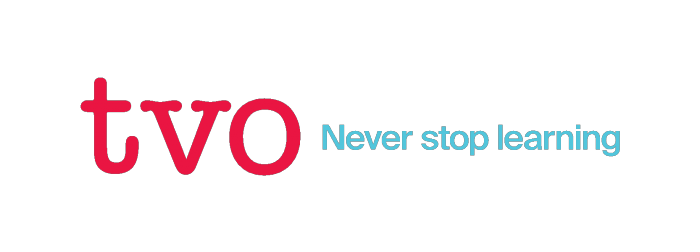
Media Relations
-
About the NFB
For more than 80 years, the National Film Board of Canada (NFB) has produced, distributed and preserved those stories, which now form a vast audiovisual collection—an important part of our cultural heritage that represents all Canadians.
To tell these stories, the NFB works with filmmakers of all ages and backgrounds, from across the country. It harnesses their creativity to produce relevant and groundbreaking content for curious, engaged and diverse audiences. The NFB also collaborates with industry experts to foster innovation in every aspect of storytelling, from formats to distribution models.
Every year, another 50 or so powerful new animated and documentary films are added to the NFB’s extensive collection of more than 14,000 titles, half of which are available to watch for free on nfb.ca.
Through its mandate, its stature and its productions, the NFB contributes to Canada’s cultural identity and is helping to build the Canada of tomorrow.
-
About Intervention Productions
Intervention Productions creates paradigm-shifting documentary media that presents new modes of understanding gender-based violence. By weaving together candid personal narratives and cutting-edge fieldwork, Intervention Productions tells powerful stories that challenge dominant viewpoints and offer refreshing glimpses at the many forms that healing and justice can take. The groundbreaking 2014 Indiegogo campaign for its debut feature, A Better Man, set a new bar for crowdfunding documentary film, raising over $100,000 from donors in 30 countries and earning support from influential artists ranging from Margaret Atwood to Leslie Feist. Intervention Productions co-founders Attiya Khan and Christine Kleckner believe passionately in the power of documentary storytelling to transform our communities and the world at large. For more information and resources including their impact and outreach work, visit www.abettermanfilm.com.
www.facebook.com/abettermanfilm
www.twitter.com/abettermanfilm
www.youtube.com/abettermanfilm
www.instagram.com/abettermanfilm